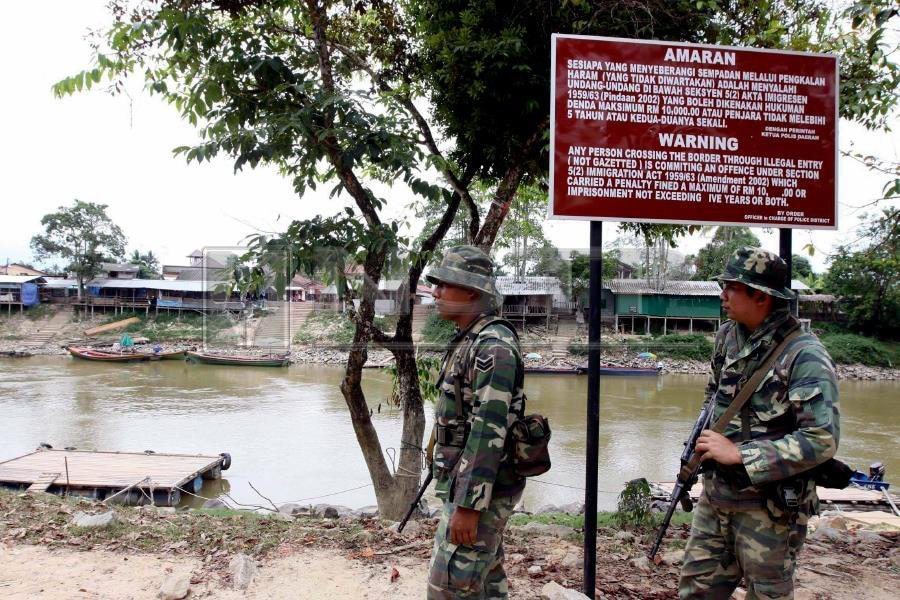SINCE 2014, Malaysia has facilitated a number of dialogues between the Thai government and Mara Patani, an umbrella of separatist groups in southern Thailand. However, progress remains deadlocked due to the implementation of safe zones in the area.
Nonetheless, analysts are optimistic that Tun Dr Mahathir Mohamad’s visit will boost efforts and inject fresh energy into the peace process. Indeed, recent developments do indicate an air of positivity. There has been a changing of the guard in Malaysia, with a new prime minister and a new lead negotiator — both of whom have enjoyed warm relations and cooperation with Thailand.
Back in 2005, two years after leaving office, Dr Mahathir initiated a round of peace talks in Langkawi between the Thais and Muslim separatist groups. Although it did not translate into tangible results, the Langkawi peace talks illustrated that the Malaysian prime minister does have an interest in the southern Thailand insurgency. Malaysia’s new lead negotiator, former inspector-general of police Tan Sri Abdul Rahim Noor, is no stranger to the southern Thailand peace process. He also worked with the Thais during his negotiation with the Communist Party of Malaysia in 1989.
Thailand, too, is in the midst of appointing a new lead negotiator in General Udomchai Thammasarorath, former Army 4th Region commander, who is said to be more open and accessible to Muslim separatist groups than his predecessor, General Aksara Kerdphol. It is not implausible to presume that Malaysia will indeed bring new proposals to the negotiating table as Thai analysts have argued, particularly as Dr Mahathir pledged “whatever possible” to end the southern Thai insurgency on the first day of his official visit to Thailand.
However, such expectations with regard to what Malaysia can achieve in the southern Thailand peace process may be an overstretch. Although there is a certainly a bout of deja vu — with Dr Mahathir and Rahim working in tandem with the Thais once again — there are some considerations that could stand in the way of a feasible solution to peace.
To begin with, it is imperative that peace talks are more inclusive with regard to more groups joining the Mara Patani umbrella. This includes Barisan Revolusi Nasional and Pattani United Liberation Organisation.
For as long as there is no expansion of dialogue members, the peace process risks a continuation of the current stalemate. It is worth reminding, realistically, that one cannot force peace upon those in conflict. The extent of Malaysia’s role in the insurgency is to encourage and facilitate both sides to reach an agreement. Indeed, the rest is up to the Thai government and Mara Patani.
The final consideration to make is simple. As things stand politically in Malaysia, Dr Mahathir is expected to be prime minister for only two years. Should Malaysia make headway in the peace process under his leadership, any continuation or progress would depend on the policies of his successor.
The other conflict that Malaysia and Thailand could focus on is the ongoing plight of the Rohingya, another cross-border issue that is affecting both countries. It is no longer a case of if, but when boats will start to depart Bangladesh, and it is almost certain that both Malaysia and Thailand will continue to face an influx of refugees, unless concrete steps are taken to reach a feasible solution. Although Malaysia is the final destination for the Rohingya, there have been sightings and reports of refugee boats being intercepted in Thai waters throughout the year.
Amidst the strong relations between Thailand and Myanmar, and the former’s ongoing efforts to help restore peace and stability in Rakhine state, the Malaysian delegation could encourage their Thai counterparts to lobby Myanmar to start addressing the Rohingya crisis as a regional, cross-border issue — one that can only be solved with the assistance of its neighbours.
Instead of Asean compelling Myanmar to take concrete steps towards a solution, which it has been reluctant to do, it will be Myanmar reaching out to fellow member states for help. Thailand itself is a case in point, having previously experienced the repatriation and resettlement of three million Cambodian refugees with the help of its neighbours. Just a few days ago, Foreign Affairs Minister Saifuddin Abdullah stated that the Thai and Singaporean foreign ministers, as future and current Asean chairmen, respectively, are set to travel to Myanmar to broker a deal on the repatriation of the Rohingya.
The southern Thailand insurgency and the Rohingya crisis are added pressures that both Malaysia and Thailand face as founding members of Asean. Dr Mahathir’s visit could not come at a more opportune moment, as cooperation between the two countries on these conflicts would foster stronger partnership within the Asean framework, a key issue that Thai Prime Minister General Prayut Chan-o-cha outlined during the joint press conference on Wednesday.
It would also influence and set the tone for the upcoming Asean leaders meeting next month and, more importantly, Thailand’s chairmanship next year.





